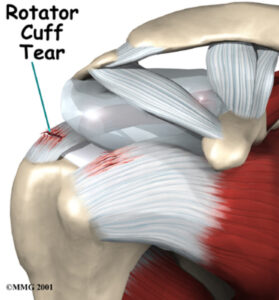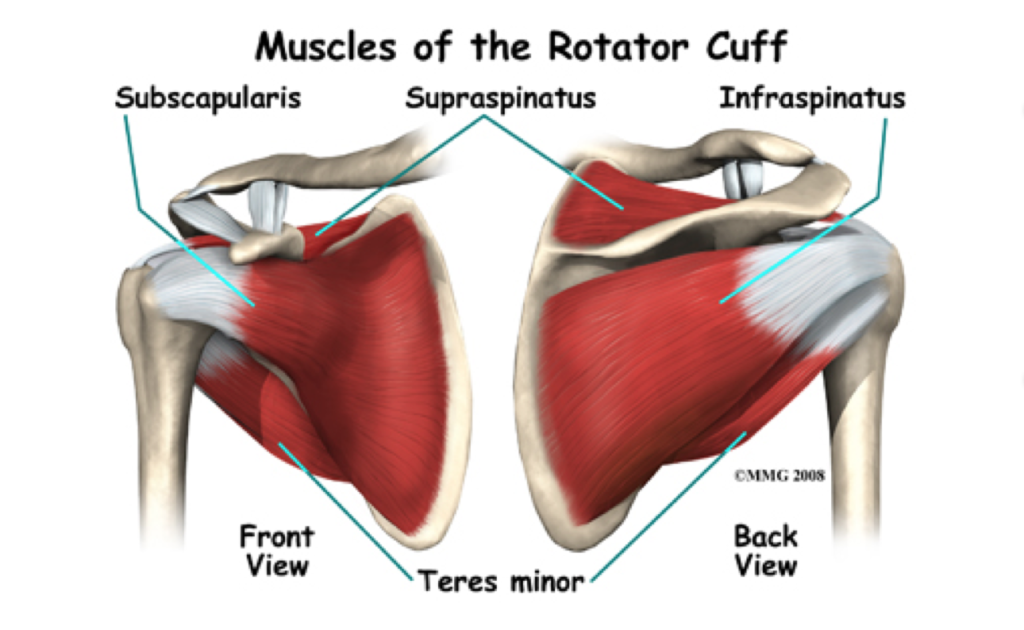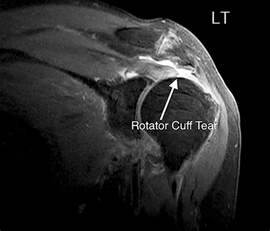ROTATOR CUFF TEAR

What is the rotator cuff?
The rotator cuff is a group of tendons in your shoulder joint that enables movement while also providing safe stability. These tendons are vulnerable to injury from excess pressure from the scapula, which is part of your shoulder blade, as you raise your arm

What are the symptoms of a rotator cuff injury?
Pain in your shoulder is one indication of a rotator cuff tear or injury. Other symptoms to look for include:
- Pain in the shoulder more so at night
- Restricted shoulder movements
- Crackling sensations when you move your shoulder in certain positions
- Swelling and tenderness at the front of your shoulder joint
What causes a rotator cuff tear?
Repetitive overhead movements can lead to rotator cuff injury over time. Swinging a tennis racquet, throwing a ball, and pushing weights overhead are possible causes. Occupational activities that involve reaching overhead, such as painting, also put you at risk. Trauma resulting from sports or during a motor vehicle accident can cause a tear as well.
How is a rotator cuff tear diagnosed?
Doctor diagnoses a rotator cuff tear after a thorough clinical examination and review of your medical history. He may order imaging tests, including MRIs and X-rays, to get a further understanding of the workings inside your shoulder joint.

What are the treatment options for a rotator cuff injury?
Conservative treatment options include rest and supporting your injured shoulder in a sling. Often you can rehab a rotator cuff and manage pain with steroid injections into the joint. Pain medications also help reduce discomfort. Physical therapy is part of a conservative treatment plan.
Doctor may determine your need for surgery to resolve your pain and restore function. Arthroscopy procedures increase the space for the rotator cuff tendons. Doctor repairs the torn tendon or tendons using suture anchors, which attach the tendons to your shoulder bone. Post surgical rehabilitative program restores complete muscle strength and function.
When you have reduced a range of motion in your shoulder and weakness in your arm, it may indicate a torn rotator cuff. Contact Dr. Harsha C M or book an appointment online to take advantage of his diagnostic and treatment experience.
